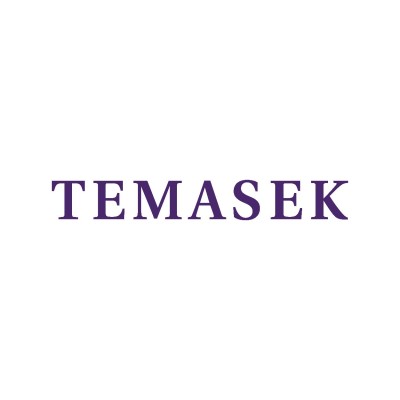Southeast Asia's AI Awakening: Whale's $60 Million Leap into the Future
May 21, 2025, 11:23 pm
In the bustling streets of Southeast Asia, a quiet revolution is brewing. The digital landscape is shifting, and at the forefront is Whale, an AI startup that just secured a whopping $60 million in funding. This isn't just another tech story; it's a glimpse into the future of business in a region ripe for transformation.
Whale, founded in 2017, has its roots in China but has recently set its sights on Singapore. The company is on a mission to answer a pressing question: "What can AI do for me?" This inquiry is not just a corporate mantra; it’s the lifeblood of Whale’s innovation. With this latest funding round, led by Temasek Holdings and Bosch Ventures, Whale is poised to make waves across Southeast Asia.
The region has been slow to embrace AI, with many enterprises treading cautiously. Yet, Whale's success signifies a shift. It’s a bold bet that Southeast Asia is ready to be watched, analyzed, and transformed by AI. The funding is not just capital; it’s a vote of confidence in a market that is still finding its footing in the tech world.
Whale's flagship product, SpaceSight, is a game-changer. This AI-powered video analytics platform is already deployed in over 4,000 stores. It monitors customer traffic, product placement, and staff performance in real-time. Imagine a store where every movement is tracked, every decision backed by data. That’s the future Whale is building.
But Whale isn’t stopping there. The company has also launched Echo, an analytics platform that dives into conversations between sales staff and customers. This tool, developed with customer consent, offers insights into consumer behavior and preferences. It’s like having a crystal ball that reveals what customers want before they even know it themselves.
The challenge, however, lies in the cultural landscape of Southeast Asia. The region is diverse, with varying attitudes towards privacy and surveillance. Will consumers embrace AI that watches their every move? Whale believes they will. The company’s strategy hinges on transparency and consent, which could be the key to winning over skeptical consumers.
Whale’s expansion is not just about technology; it’s about relationships. By establishing a base in Singapore, Whale can maintain ties with clients in China while reaching out to customers in the U.S. This dual approach positions Whale as a bridge between markets, leveraging the strengths of both regions.
The funding landscape for AI startups is competitive. Yet, Whale stands out. Its unique offerings cater to a variety of industries, from retail to healthcare. The company’s diverse portfolio includes AI solutions for fashion, food and beverage, and automotive sectors. This versatility is crucial in a region where industries are still exploring the potential of AI.
Whale’s success is also a reflection of the broader trends in Southeast Asia. As digital transformation accelerates, businesses are increasingly looking for ways to automate operations and enhance decision-making. Whale’s products promise to deliver just that. With over 60 fine-tuned AI models, the company is ready to tackle the challenges of enterprise-level AI.
But what does this mean for the future? As Whale continues to innovate, it will likely face competition from both local and international players. The race is on to capture the hearts and minds of businesses eager to adopt AI. The stakes are high, and the rewards could be transformative.
The implications of Whale’s success extend beyond the company itself. It signals a shift in how Southeast Asia views technology. No longer is it just a consumer market; it’s becoming a hub for innovation. The region is awakening to the possibilities of AI, and Whale is leading the charge.
As the dust settles on this funding round, one thing is clear: Whale is not just betting on AI; it’s betting on Southeast Asia. The company’s vision is ambitious, but the potential is immense. If Whale can navigate the complexities of the market and build trust with consumers, it could redefine the landscape of business in the region.
In conclusion, Whale’s $60 million funding is more than just a financial milestone. It’s a beacon of hope for Southeast Asia’s tech ecosystem. As the region embraces AI, the possibilities are endless. The future is here, and it’s watching us closely. Will we embrace it? Only time will tell. But with innovators like Whale at the helm, the journey promises to be exciting.
Whale, founded in 2017, has its roots in China but has recently set its sights on Singapore. The company is on a mission to answer a pressing question: "What can AI do for me?" This inquiry is not just a corporate mantra; it’s the lifeblood of Whale’s innovation. With this latest funding round, led by Temasek Holdings and Bosch Ventures, Whale is poised to make waves across Southeast Asia.
The region has been slow to embrace AI, with many enterprises treading cautiously. Yet, Whale's success signifies a shift. It’s a bold bet that Southeast Asia is ready to be watched, analyzed, and transformed by AI. The funding is not just capital; it’s a vote of confidence in a market that is still finding its footing in the tech world.
Whale's flagship product, SpaceSight, is a game-changer. This AI-powered video analytics platform is already deployed in over 4,000 stores. It monitors customer traffic, product placement, and staff performance in real-time. Imagine a store where every movement is tracked, every decision backed by data. That’s the future Whale is building.
But Whale isn’t stopping there. The company has also launched Echo, an analytics platform that dives into conversations between sales staff and customers. This tool, developed with customer consent, offers insights into consumer behavior and preferences. It’s like having a crystal ball that reveals what customers want before they even know it themselves.
The challenge, however, lies in the cultural landscape of Southeast Asia. The region is diverse, with varying attitudes towards privacy and surveillance. Will consumers embrace AI that watches their every move? Whale believes they will. The company’s strategy hinges on transparency and consent, which could be the key to winning over skeptical consumers.
Whale’s expansion is not just about technology; it’s about relationships. By establishing a base in Singapore, Whale can maintain ties with clients in China while reaching out to customers in the U.S. This dual approach positions Whale as a bridge between markets, leveraging the strengths of both regions.
The funding landscape for AI startups is competitive. Yet, Whale stands out. Its unique offerings cater to a variety of industries, from retail to healthcare. The company’s diverse portfolio includes AI solutions for fashion, food and beverage, and automotive sectors. This versatility is crucial in a region where industries are still exploring the potential of AI.
Whale’s success is also a reflection of the broader trends in Southeast Asia. As digital transformation accelerates, businesses are increasingly looking for ways to automate operations and enhance decision-making. Whale’s products promise to deliver just that. With over 60 fine-tuned AI models, the company is ready to tackle the challenges of enterprise-level AI.
But what does this mean for the future? As Whale continues to innovate, it will likely face competition from both local and international players. The race is on to capture the hearts and minds of businesses eager to adopt AI. The stakes are high, and the rewards could be transformative.
The implications of Whale’s success extend beyond the company itself. It signals a shift in how Southeast Asia views technology. No longer is it just a consumer market; it’s becoming a hub for innovation. The region is awakening to the possibilities of AI, and Whale is leading the charge.
As the dust settles on this funding round, one thing is clear: Whale is not just betting on AI; it’s betting on Southeast Asia. The company’s vision is ambitious, but the potential is immense. If Whale can navigate the complexities of the market and build trust with consumers, it could redefine the landscape of business in the region.
In conclusion, Whale’s $60 million funding is more than just a financial milestone. It’s a beacon of hope for Southeast Asia’s tech ecosystem. As the region embraces AI, the possibilities are endless. The future is here, and it’s watching us closely. Will we embrace it? Only time will tell. But with innovators like Whale at the helm, the journey promises to be exciting.


